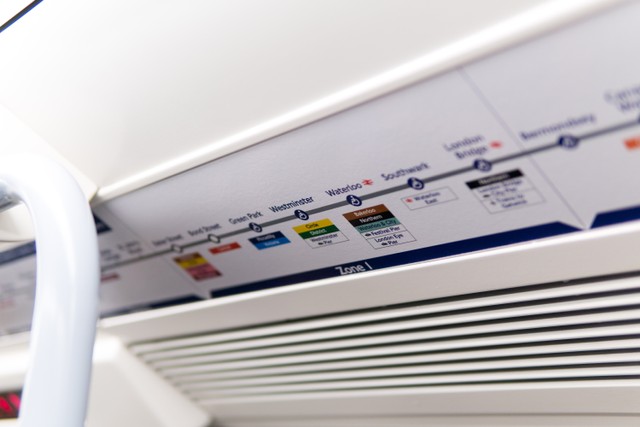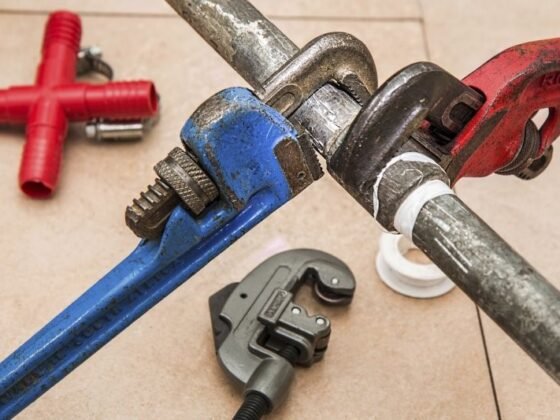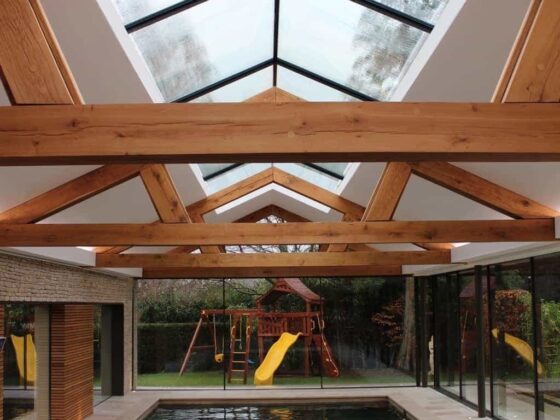Table of Contents Show
According to the United Nations News, the average global temperature is inching closer to the 1.5-degree threshold above pre-industrial levels in the coming five years. This means that our survival in the extreme heat is going to be increasingly difficult.

When the temperature rises, we all know that it’s time to turn on our air conditioners. If you’re experiencing problems with your AC unit, it could be time for a repair or replacement.
But how do you make that decision? First, you should assess whether there’s any damage or wear and tear that makes it more costly to repair than replace. Then weigh the pros and cons of both options before making the final decision.
In this article, we will be covering some major considerations that will make the decision-making task easier for you.
Air Conditioners Don’t Last Forever
Unfortunately, the lifespan of an air conditioner is 10-15 years on average. But that doesn’t mean it has to break down any time soon. With proper maintenance and care, you can extend the life of your AC unit by several years.
However, there are no guarantees that you won’t have an issue with your system at some point during its lifespan, and when this happens, it can be inconvenient at best and dangerous at worst.
You might notice that your AC unit is having trouble keeping up on warm days. If you have a newer AC unit, this could be a sign that it’s time for repair. This is especially true if you live in an area that gets hot and humid during the summer months.
The same goes for cool weather. If you notice that your home isn’t as warm as usual during the fall or winter months, and especially if your thermostat reads below 70 degrees Fahrenheit, it may be time for repair work by a qualified technician. Don’t wait until temperatures drop further.
Read Also:
The Main Causes of Air Conditioner Failure
The first step to determining if you need to repair or replace your air conditioner is to identify what’s causing it. Here are two common reasons for failure:
Faulty Compressor
A faulty compressor is often caused by mechanical damage or corrosion from moisture or debris that’s entered the system over time. If this is the case, you’ll want to get your air conditioner serviced as soon as possible before it malfunctions completely and stops working altogether.
The cost of repairing a faulty compressor varies depending on your location. In areas like East Peoria, the technicians will charge you around $50-$100 for a quick inspection of your AC unit at home. If there happens to be a slight leak, they don’t usually charge you extra because it is a quick fix.
But if the repair requires replacing some internal parts, then they may charge you more depending on the parts that are being replaced.
In areas like East Peoria, where the summer temperature gets high as 86 degrees Fahrenheit and winter temperature as low as 15 degrees Fahrenheit, it is always a good idea to keep your AC well-maintained through East Peoria AC repair services.
Leak in the Refrigerant
There are several reasons why an older model may develop a leak in its refrigeration system, including exposure to excessive heat and humidity over time. These leaks can cause cooling problems in multiple ways. Repairing leaks like these usually cost less than $200.
What’s the Condition of Your AC Unit?
To decide whether you need to repair or replace your AC unit, start by taking a look at the system itself. Look for signs of wear and tear. If something looks like it’s coming apart or needs to be replaced, then it’s time to think about replacing the whole thing.
Also, check the filter and make sure that it’s clean and without any debris. If not, clean or replace it as necessary.
The evaporator and condenser coils should be free from any blockage, such as dirt, dust, mold, and algae buildup, that could impede the heat transfer capabilities of your unit. Make sure there aren’t any leaks in these areas either, as well as in other parts that hold refrigerant.
Weigh the Pros and Cons
Consider the cost of repair. If you’re planning on repairing your system before it breaks down, be sure to consider the costs of labor and any parts that might need replacing.
On the other hand, if you decide that a new air conditioner is your best bet for keeping cool this summer, then you’ll want to get an estimate on both what it’ll cost to install a new unit and how much energy it will use once installed.
That way, you can decide whether or not getting a whole new system makes financial sense for your household.
Consider the Age and Condition of Your System
When you are on your way to deciding whether you are repairing or replacing your air conditioner, you should consider several factors.
First, examine the age and condition of your unit. If it’s more than 9 or 10 years old or has been repaired multiple times, it may need a replacement now. The warranty on newer systems can also help you decide whether to keep or replace your unit.
Second, factor in how much each option would cost over time, including service fees and energy usage, to get a clearer picture of which option will work best for you financially.
Finally, think about how important climate control is to your daily life. If having an air conditioner is crucial even in mild climates where temperatures rarely exceed 70 degrees Fahrenheit, then it may be worth investing in repairs rather than replacing the entire system altogether.
Look Into Rebates and Tax Credits
Market research shows that the global Air Conditioner market was last valued at $106.60 billion in the year 2020. It is further expected to grow at a Compound Annual Growth Rate of 6.2% from 2021 to 2028.
Therefore, if you’re considering buying a new air conditioner, look into any available tax credits and rebates. Your local utility company may offer incentives for investing in energy-efficient technologies that reduce your carbon footprint and help the environment.
If you’re still unsure about the final decision, consider getting a second opinion from an HVAC professional. They can inspect your system from top to bottom and tell you what repairs are needed and how much it will cost to keep things running smoothly moving forward.
Conclusion
Don’t be afraid to ask for help. Everyone has their own idea of what they can do themselves. But when it comes down to it, we simply don’t know enough about our homes’ systems to be able to diagnose every problem ourselves without some outside help.
We hope this post has helped you make an informed decision about your air conditioner. We encourage you to call a professional if you’re still feeling uncertain.









